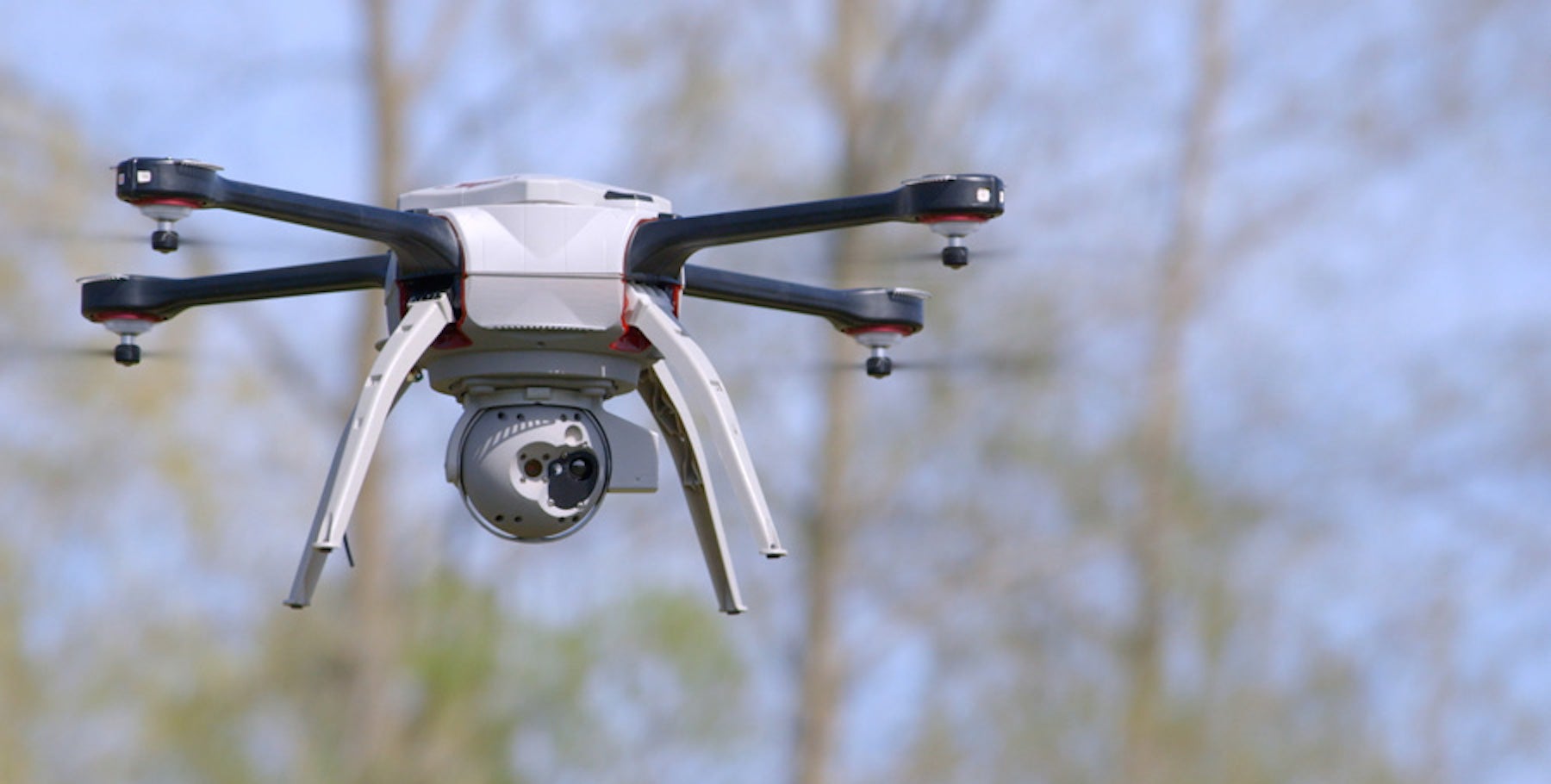Police in England might soon be unleashing drones during protests and sieges
British police have been given the green light to deploy drones during protests, sieges, and other “high risk” operations.


British police have been given the green light to deploy drones during protests, sieges, and other “high risk” operations.
After a successful trial, more than a quarter of the 43 territorial police forces in England and Wales are now looking into using drones for sanctioned operations, which also include searches for missing people, the Times of London (paywall) reported.
Police forces who oversee swaths of rural territory have been more active in getting drones airborne. A check of the Civil Aviation Authority’s (CAA) list of approved commercial drone operators shows that seven police forces may currently operate the flying machines. This includes Sussex police, who conducted the trial, and other forces with coastline and countryside within their territories.
London’s Metropolitan police does not have an active approval to operate drones. The Met press office told Quartz that it doesn’t comment on its use of surveillance methods.
Sussex police started using a drone in 2014 to patrol the perimeter of Gatwick airport, one of the six airports that serve London. The force has also used drones in search operations for missing people, to investigate road traffic collisions, and for public safety management at events, according to the minutes (pdf) of a monthly Sussex Police and Crime Commissioner performance and accountability meeting. On the back of those trials, the UK government gave the force nearly £250,000 in funding to run an expanded test with five new drones.
Police can only use drones if they comply with a set of national guidelines issued after the latest trial, according to the Times of London. The national Police Chiefs’ Council lead on drones, Steve Barry, said that drones can be more efficient and effective than police dogs and helicopters. Barry told Quartz in a statement that he was looking into using drones for counter-terrorism work, emergency response, and maintenance of public order.
Drone registrations in the UK have exploded this year. Between 2006 and 2013 there were 128 authorizations for unmanned aerial vehicles with the CAA, according to civil liberties nonprofit Big Brother Watch (pdf). Today the CAA register has 1,302 active approvals. Most have been for the private sector, but approvals also have been given to public entities including the police forces, some fire and rescue forces, and the Scottish Environment Agency.
Police drones have sparked concerns about invasion of privacy by law enforcement agencies. Big Brother Watch’s chief executive, Renate Samson, said “proper guidelines and proper conversation” with the public were necessary for the appropriate use of drones by police. Barry seemed to underline this message, telling the Times that officers were required to have a legitimate purpose for deploying a drone. “Low-level crime would not justify a drone being deployed over back gardens of people’s houses,” he said.